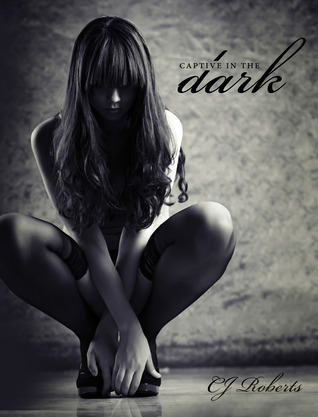Comfort Food by Kitty Thomas
The first thing that I have to say about this book is that it is dark and very disturbing. It tells the story of Emily Vargas who has been taken captive and is being conditioned to respond to different stimuli in very different ways. This book is not a romance and deals with numerous acts performed without consent. Emily is a victim of a cruel and vindictive man who repeatedly rapes her.
One of things that I 'like' about this book is the way in which Thomas never tries to portray it as a romance and makes the master/slave dynamic very prominent throughout the book. It is a fascinating look at the on the psychology of power and condition and uses a fictional scenario to demonstrate that normal is all relative. After months of torture Emily begins to associate chicken noodle soup with displease and punishment and a whipping as a comfort.
I want to be clear in stating that there is nothing redeemable in the captor and abuser in this novel and I firmly believe that he should not be pitied. Emily's ordeal is deeply touching and emotionally highly charged which makes for an addictive read. The pacing of it is masterful and the plot immensely though-provoking. The ending of this novel tore me apart emotionally, but regardless I think it was a truly amazing read.
Consequences by Aleatha Romig
This book too is not what I would call a slushy romance. It is dark and violent and manipulates all of your emotions. er
This book is a revelation. I devoured the first instalment even though it moved me beyond any expectation. I initilally found this author on an adult fiction blog and was turned off immedieatly by the mention of dark material. Raoe and romance combined is not something that sat well with me. My mind was comepletely changed.
Tony and Claire's story is the honest look at darker romances. Every girl wants a bad boy right? Well, Anthony Rawlings is what that would really mean. He is not the typical womanising, motorbike driving loveable rogue. Tony is dark, sadistic, violent and yet in the second book I would argue he finds his redemption.
Claire is the inspiration that I have waited years to read. She has shattered every preconceived notion I had about domestic abuse victims. I used to believe that submission meant weakness and outright defiance was the only way. Now I understand that strength can be seen in acquiescence and I even think I learner the meaning of courage.
I was much more emotionally wrecked by the first book which I would without pause give 5 stars. The second is way more statisfying at the end than the first. Having said that, I haven't yet finisihed the third book because lots of other things got in the way and I now need to just sit down and read the whole trilogy. It is something I am look forward to.
If I Were You by Lisa Renee Jones
This is not at all as dark as the previous two books that I have mentioned, but does have a dark element to it. The novel is based around the mystery of the disappearance of Rebecca who is an art dealer. Teacher Sara during her summer break stumbles across Rebecca's journals after her friend buys them as part of a storage sale. The journals are filled with details about a deeply erotic relationship that Rebecca was having which leads Sara to go on the hunt in order to give them back. During her search Sara finds herself doing Rebecca's job and receiving the attention of two very intense men, who may or may not be the man in the journals.
This book is fun and interesting because it isn't just an erotic romance, but also has the mystery element to it making for an altogether more interesting read than 50 Shades. There is an element of a love triangle in the book, but thankfully Sara doesn't get too caught up in it and makes her decision clear early on. The love interests Chris and Mark (mostly Chris) are dark and brooding, just like Fifty. However, despite the inference of BDSM they are both much less manipulative and controlling. Mark abuses his authority over Sara and I would most definitely question his professionalism, but he isn't a stalker! Chris is too thankfully free of the worse of the Greyisms and his and Sara's relationship makes for a good, if a little messy romance.
The book does have several sequals, but for me it really is just part of a duology as in the second book (Being Me) the Rebecca mystery is pretty much put to bed. I have read the blurb of the third book, Revealing Us and frankly it sounds far too angst-ridden for me, especially after Fifty Shades Darker. Overall, I would say that this is well worth a read and as the title would suggest, is much better than Fifty Shades of Grey.





